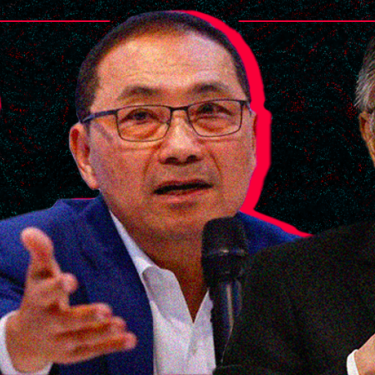Taiwan's general elections: RSF urges candidates to strengthen the country’s media sector against disinformation

Reporters Without Borders (RSF) calls on the candidates to the 13 January 2024 presidential election, and all political parties running for the parliamentary election set on the same day, to commit to reforms that would enhance public trust in the media and help to fight disinformation.
One month ahead of the presidential and legislative elections, RSF calls on all candidates and political parties to endorse and promote a political agenda in support of independent journalism including reforms aimed at strengthening newsroom’s editorial independence; creating a due process against disinformation; significantly increasing public media’s resources; supporting ethical journalism; and expanding media literacy (see detailed recommendations below).
RSF thus addresses candidates from the three main parties contesting the presidential elections: Democratic Progressive Party represented by Lai Ching-te and Hsiao Bi-khim, Kuomintang represented by Hou Yu-ih with Jaw Shaw-kong, and Taiwan People's Party represented by Ko Wen-je with Cynthia Wu.
"The structural weakness of the Taiwanese media makes them particularly vulnerable to disinformation attacks, which represents a real threat to democracy, especially during election periods. It is urgent for the future government and legislators to take the necessary measures to restore confidence in the media and to protect the proper functioning of the country's democratic system.
Taiwan, officially the Republic of China, is a liberal democracy and the world’s 21st largest economy, that generally respects the principles of media freedom yet journalists suffer from a very polarised media environment dominated by sensationalism and the pursuit of profit at the expense of quality news reporting. The country is also the target of growing media interference from the People's Republic of China, which aggressively claims its sovereignty over the island.
Reforms are necessary to restore public trust in the media
In November 2023, RSF launched an appeal to encourage the Taiwanese media to take greater account of journalistic ethics in their coverage of the forthcoming elections. This initiative, joined by six media outlets, aims at rebuilding trust between the public and journalists, in a country that suffers from one of the lowest trust rates in the media among democracies (28%) and where the media community is often criticised for disregarding journalism ethics.
RSF reiterates its recommendations:
● Establish regulations that effectively protect the independence of editorial departments from their employers and boards of directors; strengthen the National Communications Commission’s independence, increase its resources and extend its mandate to all media.
● Establish regulations against disinformation in line with international standards of freedom of expression; create a process that includes judicial review when government authorities or online platforms deem appropriate to block or delete content.
● Upscale the amount of financial resources allocated to public media outlets; reinforce the guarantees of their editorial independence so that they cannot be suspected of political bias.
● Support the emergence of new media outlets that aim to uphold journalistic ethics, through economic and fiscal incentives; support independent fact checking initiatives; encourage the media to join independent certification projects such as the Journalism Trust Initiative (JTI).
● Emphasise critical thinking and media literacy in academic curricula and public education actions; ensure that school children are being taught from a young age to discern fact from fiction.
Taiwan ranks 35th out of 180 in the 2023 RSF World Press Freedom Index. China, the world’s largest captor of journalists and press freedom defenders with at least 121 detained, ranks 179th.
